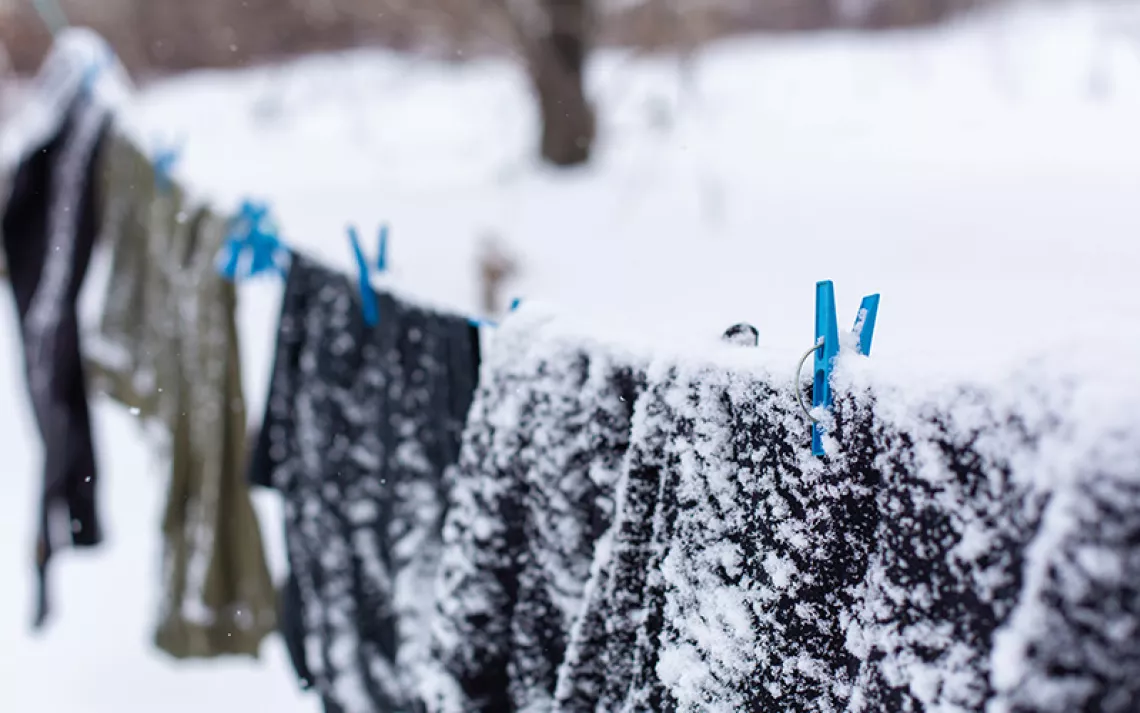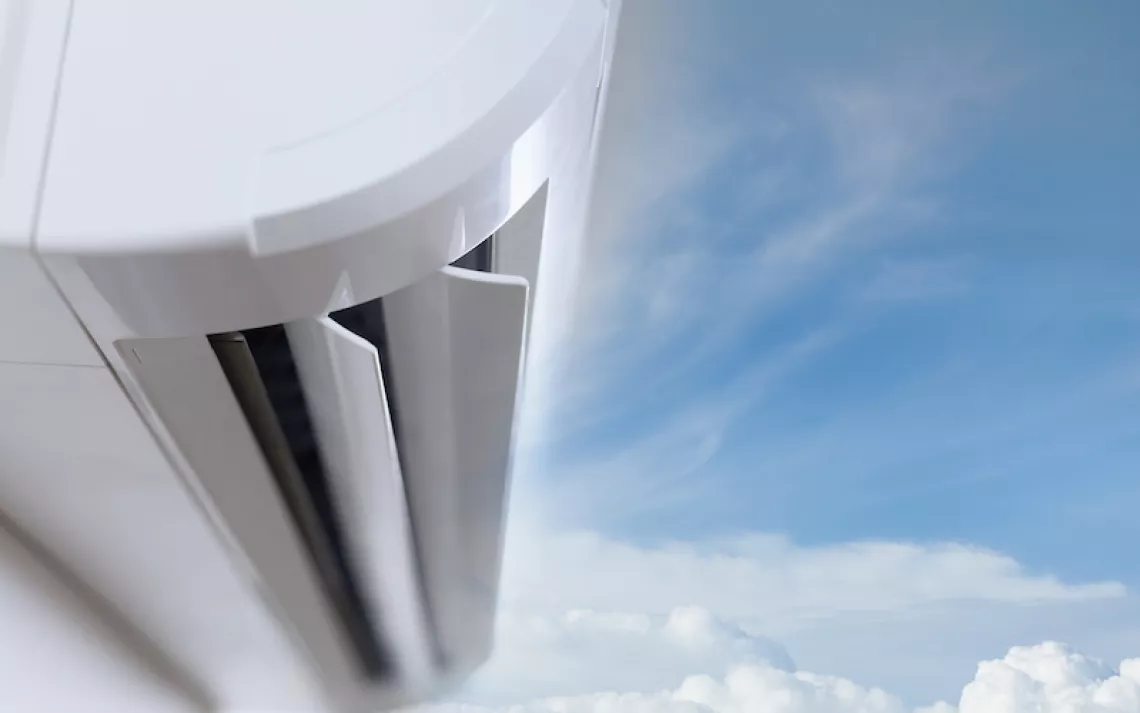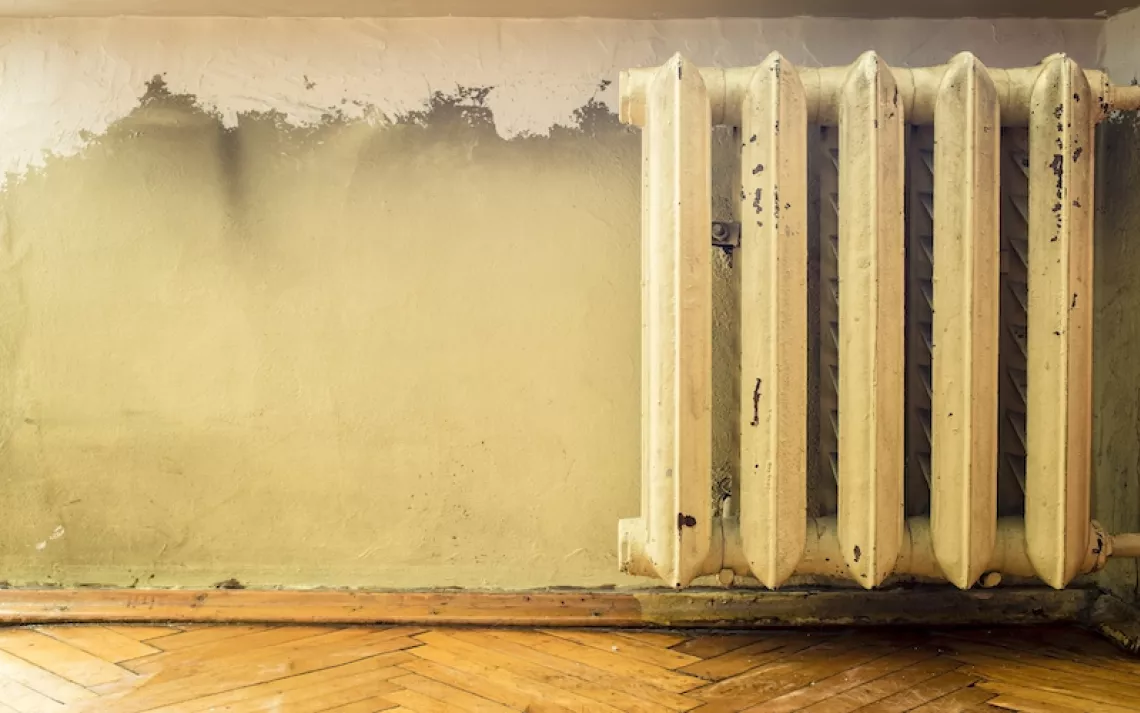Is It More Energy-Efficient to Air Condition Your House While You’re Away or Turn It Off Altogether?

Photo by iStock/wathanyu
Hey Mr. Green,
A number of people claim that it’s more energy-efficient to leave the air conditioning on while you’re away than to turn it off or down when you leave and then turn it back up when you return. In fact, Angie’s List (Raleigh edition, June 2016) recommends that if you go on vacation, you should at most “add four degrees to the temperature you normally set” (e.g., from 72° to 76°), claiming that “more than [four degrees] and you may spend what you save trying to cool it back down.” This advice makes no sense to me. Why would it take more energy to cool down a warm house than it would to keep the house cool over an extended period?
—Jackie in Raleigh, North Carolina
A: The U.S. Department of Energy, the law of thermodynamics, and common sense say that you’re right and they’re wrong. “A higher interior temperature will slow the flow of heat into your house, saving energy on air conditioning,” says the DOE. The cooler you set the temperature, the harder the outside heat will try to invade, and the more the air conditioner will have to work while you’re gone.
You can save 1 to 3 percent on energy for each degree you set the temperature above 72°F. If, however, your house has problems with mold or moisture condensing inside, you might not turn the temperature up as much because air conditioners and heat pumps (which cool in the summer) also dehumidify. Since humidity is so region-specific, I suspect this is why Angie’s List recommended a higher temperature of only four degrees in your relatively muggy neck of the woods. But Angie is, as you surmise, wrong about the amount of energy needed to cool it back down, let alone keep it cooler for an extended period of time.
In many cases, as I’ve written before, a few strategically placed fans can keep you cool while requiring less energy than air conditioning. Frankly, I’ve never much liked air conditioning, not just because it uses a lot of energy, but because people crank the temperature down so low that it gets downright uncomfortable.
I once came across a scholarly paper that analyzed the demise of a small brewery near my hometown back in 1972. It argued that the final blow to the struggling business was an unusually cold summer, which of course caused beer consumption to plummet. But I contend that air conditioning in the taverns, which made them even colder than outside, also played a role. I’m happy to report that this establishment has been revived as a microbrewery—proving once again that the microbrew is the 20th century’s greatest contribution to civilization.
 The Magazine of The Sierra Club
The Magazine of The Sierra Club



